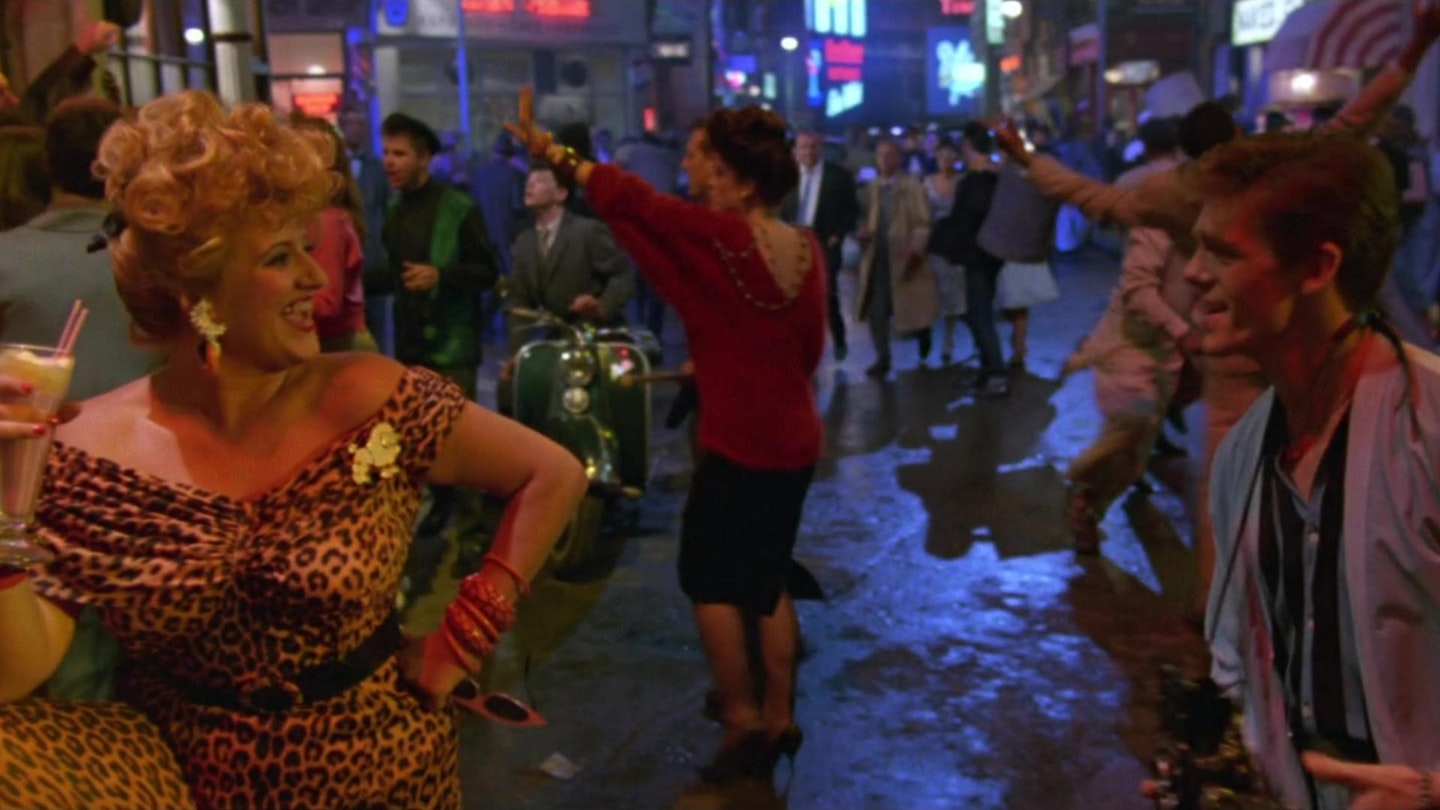Now notorious for being a great big waste of British money, talent and time, this featherbrained musical-drama certainly never held back on ambition. Julian Temple, moving on from his video-director stroke punk chronicler role of the late 70s, attempts to attach a caustic edge to a grand slab of self-satisfied, over directed pop-nonsense.
Any film that attempts to out-flamboyance Orson Welles, by hanging on longer than Touch Of Evil’s fabled four minute opening tracking shot, is up to no good. From there on, the great lumbering, look-at-me style proceeds to dance all over the meagre mewling of the plot. The song and dance numbers are so overcooked they bleed into a mild form of bedlam— with the soul exception of Bowie’s snazzy title song (the best thing the movie give us). Temple, wrestling his way through a mightily troubled production, is trying to evoke the colour and energy that accompanied the emergence of teenage rebellion, but his cast haplessly flounder with the mock-street speak and cardboard ideas of youth and identity. And mixing in a pot-pourri of trendy faces does not credibility grant: Ray Davies, Mandy Rice-Davies, Edward Tudor-Pole and a glassy-eyed Bowie all look as if they’ve been sold a pup.
Little of it actually recalls MacInnes’ socially minded novel. That is until Temple, clearly struck by the very evident shallowness of his endeavours, decided to hastily paste on a race riot sequence at the end. It’s a forlorn attempt to fool us into thinking that this was anything more than just a ragged attempt to resurrect both the ailing British film industry and the dusty musical format. It failed on both counts.
